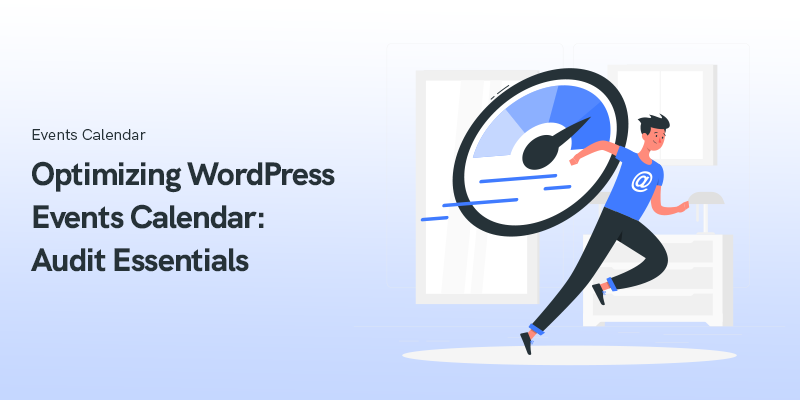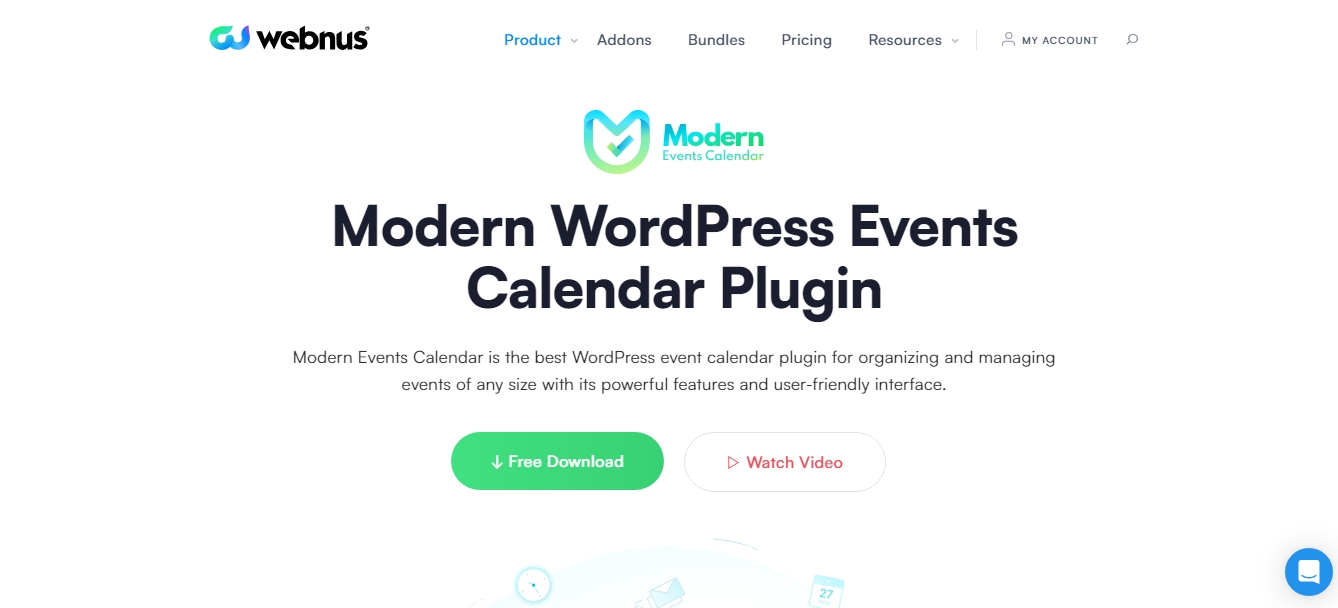
Optimizing WordPress Events Calendar in 2025: Audit Essentials
As an online event manager, your WordPress events calendar is the foundation of your digital strategy. However, even the best strategiesneed a little fine-tuning every now and then.
To review the operation you need to conduct a website audit.
No matter the WP event calendar plugin you’re using, whether it’s Modern Events Calendar or something else, you need to ensure that your plugin is optimized in order to provide a tailored and seamless user experience.
In this article, we are going to guide you through auditing your WordPress events calendar and guaranteeing peak performance for 2025.
Why a Website Audit is Crucial for Event Management
Think of your event website as a car. Without regular maintenance, it might still run, but it won’t be efficient or reliable.
A website audit helps you identify what’s working, what’s not, and where you can improve.
For event websites, this means faster load times, better SEO rankings, and higher conversions. If you are using MEC, you are already set with its built-in features that are designed to make your life a lot easier when it comes to optimization.
The Importance of Regular Website Audits
A website audit is not something to do once and never do again. Optimal website auditing is an ongoing process that helps you:
- Spot performance bottlenecks (like slow-loading pages).
- Fix SEO issues (like missing meta tags).
- Close content gaps (like outdated event descriptions).
By staying on top of these, you’ll create a better user experience and a stronger foundation for your events.
Technical Audit: Enhancing Performance and Security
Page Speed Optimization
Slow websites are a dealbreaker. Use tools like Google PageSpeed Insights to measure your site’s speed and identify areas for improvement. Compress images, enable caching, and minimize code to keep things snappy.
Mobile Responsiveness
With most users browsing on mobile, your site needs to look great on smaller screens. Test it with Google’s Mobile-Friendly Test and adjust as needed.
Security Measures
Protect your site with SSL certificates, regular malware scans, and strong passwords. A secure site builds trust and keeps your data safe.
In all the points above, the Modern Events Calendar (MEC) stands tall. It is designed to be fast, responsive, and secure.
With MEC you can focus on your events instead of technical red tape.
Content Quality Audit: Relevance and SEO Optimization
Content Relevance and Readability
Are your event descriptions clear and engaging? Do speaker bios and agendas align with your audience’s interests? Keep your content fresh and relevant.
Keyword Optimization
Use keywords like Optimizing WordPress Events Calendar naturally throughout your content. Avoid keyword stuffing—your readers (and Google) will thank you.
Meta Tags and Alt Texts
Don’t overlook the basics. Meta descriptions, title tags, and image alt texts are small but mighty for SEO.
MEC has a beautiful and optimal event page design that ensures consistency of style across your event pages.
User Experience (UX) Audit: Navigation and Engagement
Site Navigation
Can users find what they need quickly? Simplify your menu structure and use internal links to guide them.
Call-to-Action Effectiveness
Your CTAs should be clear and compelling. Whether it’s Register Now or Buy Tickets, make sure they stand out.
Accessibility
Ensure your site is inclusive by following WCAG guidelines. This isn’t just good practice—it’s essential.
MEC’s customizable layouts and widgets make it easy to create a user-friendly experience.
On-Page and Off-Page SEO Audit
On-Page SEO
Check your keyword density, internal linking, and content structure. These small tweaks can have a big impact.
Off-Page SEO
Evaluate your backlink profile and social signals. Strong off-page SEO boosts your domain authority and drives more traffic.
Analytics Integration
Use Google Analytics and MEC’s reporting features to track performance and make data-driven decisions.
Leveraging Modern Events Calendar for Optimization

MEC is not a simple calendar, it’s an event management software.
Features such as automatic event schema, customizable event pages, and compatibility with popular SEO plugins such as Yoast and Rank Math make it ideal for an effortless and optimal event management experience.
Additionally, MEC is integrated with CRM tools such as MailChimp and has functionalities to automate social posting to make your eventing life easier.
Actionable Steps: Fixing Common Audit Issues
Here’s a quick checklist to get started:
Continuous Improvement: Monitoring KPIs Post-Audit
An audit isn’t the end—it’s the beginning.
Track KPIs like registration conversion rates, engagement metrics, and SEO rankings to measure your progress.
Set up a routine audit schedule to stay ahead of the curve.
Conclusion: Maximizing Event Success Through Optimization
Optimizing your WordPress events calendar isn’t just about fixing problems—it’s about creating opportunities.
By conducting regular audits and leveraging tools like Modern Events Calendar, you can improve your site’s performance, boost your SEO, and deliver a better experience for your event attendees.
Ready to take your event management to the next level? Start your audit today and see the difference it makes.
Recommended Posts

How to Create an Effective Event Marketing Plan from Scratch in 2025
December 22, 2025






Is your Modern Events Calendar fully WCAG-compliant?